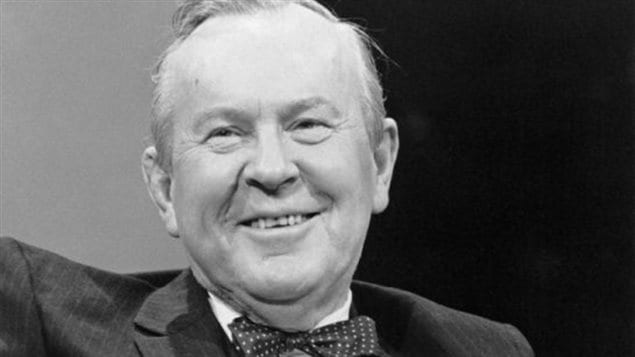Lester B Pearson is considered one of the best Canadian Prime Ministers.
During his time as national leader, (1963-68), he brought in several major programmes including universal health care, the Canada Pension Plan, the student loan plan for university education, institution of the 40 hour work week and minimum wage. He also signed the Canada-US automobile pact, assuring jobs for Canada, and it was during his tenure that he established Canada’s new national flag, the Maple Leaf, bitterly contested at the time, but now considered one of the most recognized flags in the world.

Long before that however, he had an illustrious career as a diplomat, on December 10, 1957, was awarded the Nobel Peace Prize after having created the UN Emergency Force (UNEF), to calm the Suez Crisis.
This became the first of what became the concept of UN Peacekeepers, or blue berets.
The selection committee for the Nobel said at the time that Pearson had “saved the world” after a hectic international schedule of meeting with leaders of the US, France, the UK, and their proxy Israel, and the USSR, and its proxy Egypt, all of whom had vested interests in resources in the middle east and control of the Suez Canal. This action is also credited with the eventual creation and structure of the UN Security Council.
After initial battles, Pearson’s diplomacy and creation of the blue-helmeted international UNEF, an international neutral force to stand between and separate the two sides, enabled other diplomats the time neede to resolve the dispute over control of the canal, a vital trade route.
It should be known that prior to receiving the Nobel, Pearson also played an important role in creating NATO, and the United Nations itself.
Pearson’s Nobel acceptance speech- here







For reasons beyond our control, and for an undetermined period of time, our comment section is now closed. However, our social networks remain open to your contributions.